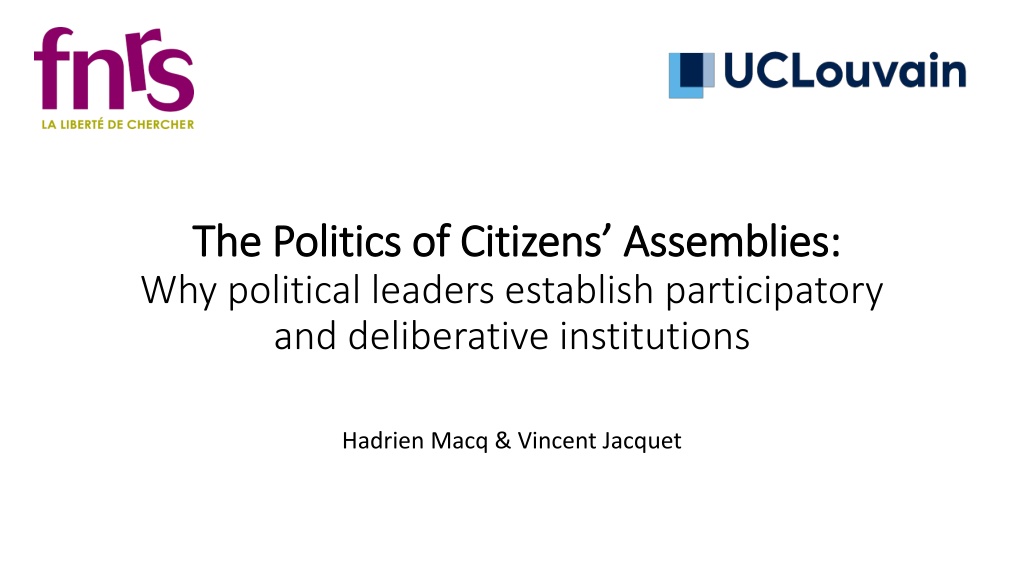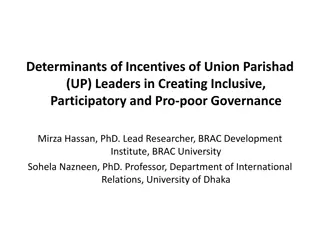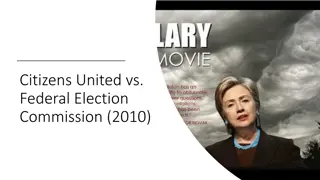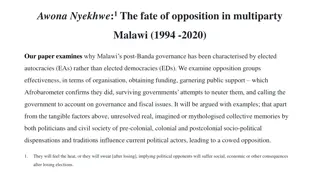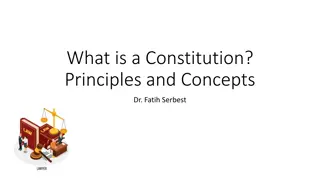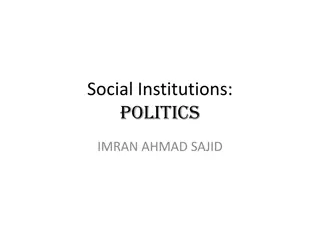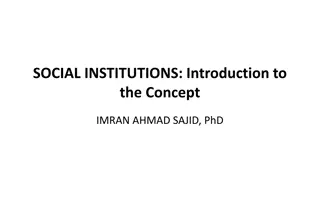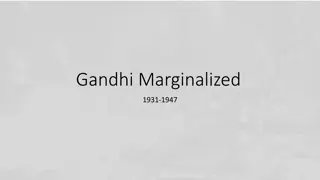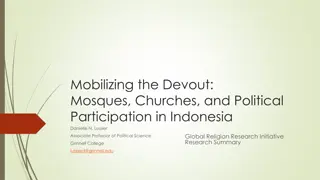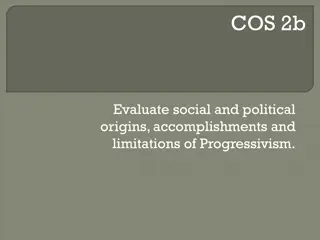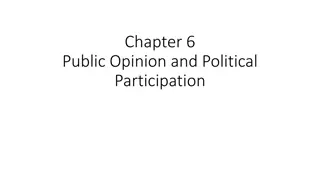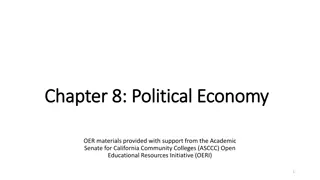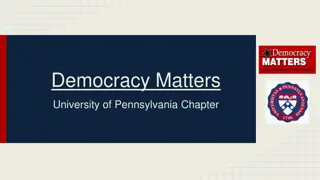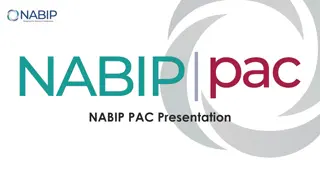The Politics of Citizens Assemblies: Why Political Leaders Establish Participatory Institutions
This study delves into the motivations behind political leaders establishing citizens assemblies, focusing on the German-speaking Community as a case study. Through interviews and analysis, it explores how these institutions lead to better decisions, heal democracy, and strengthen community bonds, ultimately enhancing the democratic process.
Download Presentation

Please find below an Image/Link to download the presentation.
The content on the website is provided AS IS for your information and personal use only. It may not be sold, licensed, or shared on other websites without obtaining consent from the author. Download presentation by click this link. If you encounter any issues during the download, it is possible that the publisher has removed the file from their server.
E N D
Presentation Transcript
The Politics of Citizens Assemblies: The Politics of Citizens Assemblies: Why political leaders establish participatory and deliberative institutions Hadrien Macq & Vincent Jacquet
Why Why do do political political leaders citizens citizens assemblies leaders establish establish (permanent) assemblies? ? (permanent) 2
The events RESEARCH DESIGN The German-speaking Community as an extreme case Interpretive approach The expected benefits Interviews with all of the main actors Inductive and thematic analysis A particular context 3
The events The expected benefits A particular context 4
1. Better Decisions Teaching, retirement homes, employment, ( ) The citizens who has a relative in a retirement home, he may give information that I, as an entrepreneur, wouldn t have obtained or thought otherwise. And the same goes when we speak of child care: there are practical things we do not think about. (Leader of a parliamentary group). The events The expected benefits 2. Healing democracy (ex 1) Mutual comprehension and thinking it is not that easy to make political choices after all , because people quickly understand that there is not enough budget etc., that one has to make choices in decision-making processes (Leader of a parliamentary group). A particular context 5
The events 2. Healing democracy (ex 2) If we succeed in organizing a certain peace between citizens and politicians, if we succeed in making our representative democratic system more credible, then we take that from the populist parties, and it costs them votes because they benefit from the failure of our system, of our democracy. This is their market, where they get all their votes from. And so they do not want us to reform because we might of course take off a little bit of the people s frustration that they benefit from on a daily basis (Minister-President) The expected benefits A particular context 6
The events Building the Community This aspect of identification is crucial for a minority, for its survival, for its autonomy. And the elected representatives, in general, they are interested in augmenting the credibility of the political work by working with [the citizens] (Member of Parliament staff). Breeding ground The expected benefits We have always lived here in a small community ( ) we are very close to the people, ( ) so we have some citizens dialogue almost daily, if you want (Leader of a parliamentary group) A particular context 7
Citizens assemblies as elites legitimation Citizens assemblies as elites legitimation tools? tools? To me it s crystal clear: a B rgerdialog is a B rgerdialog. In a democratic system like ours, the Parliament decides. This, to me, is not object to any discussion, because the elections provide us with legitimacy (Leader of a parliamentary group) This, to me, is the crucial point. If we do not respect what the citizens have thought and discussed, then we are not trustworthy anymore. So we have to make sure that these people, which take time to participate, do not feel aggrieved (Leader of a parliamentary group). 8
The Politics of Citizens Assemblies: The Politics of Citizens Assemblies: Why political leaders establish participatory and deliberative institutions Hadrien Macq & Vincent Jacquet
